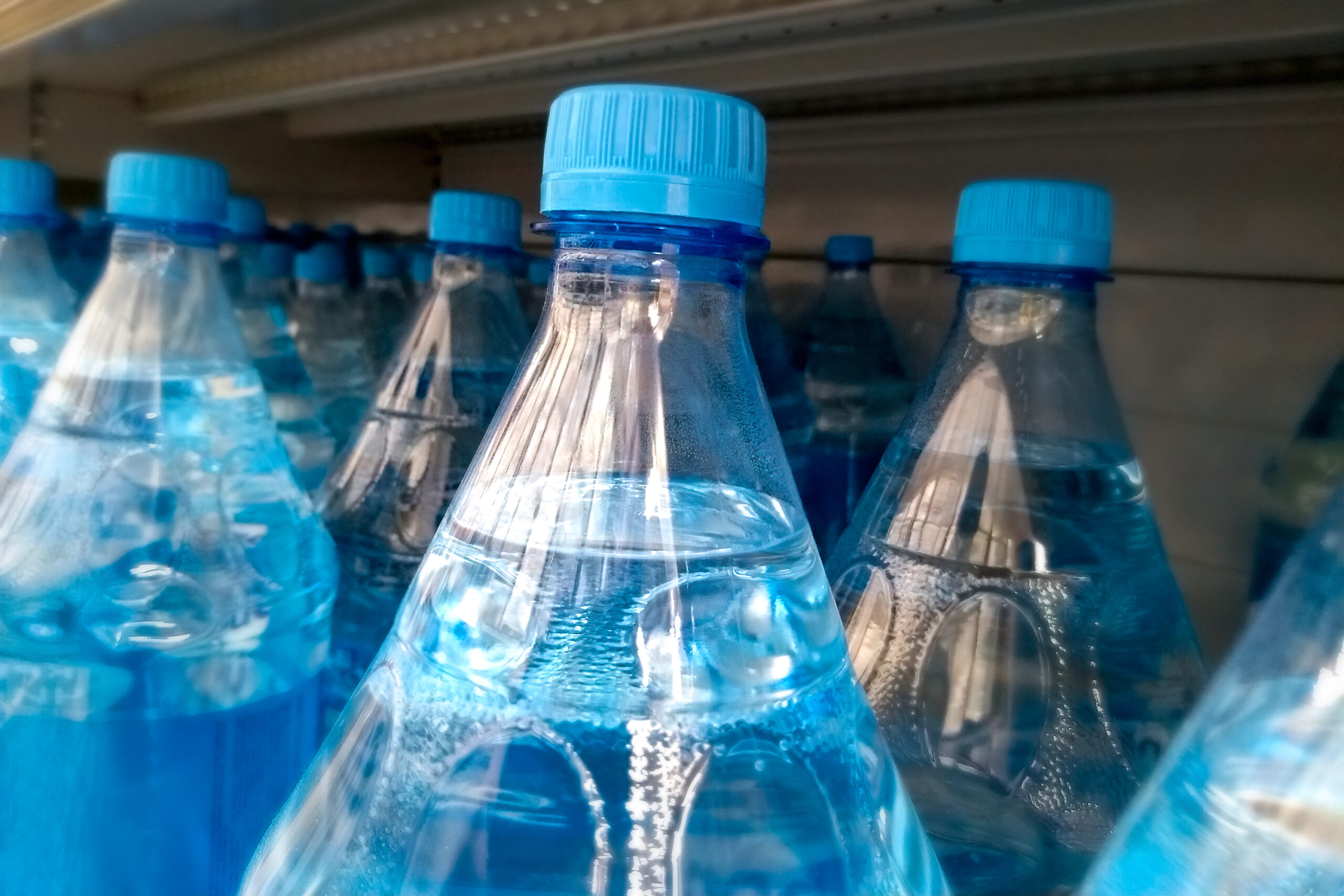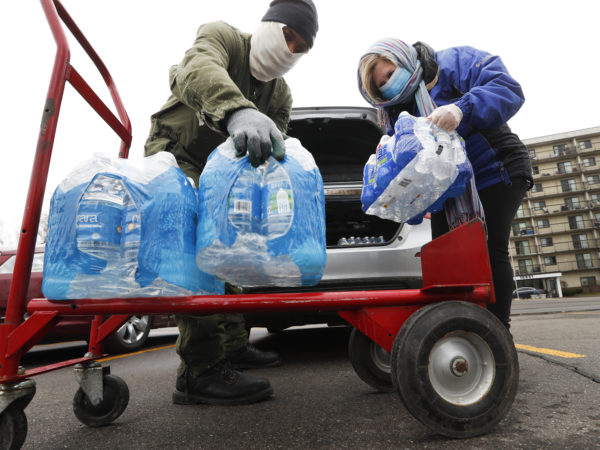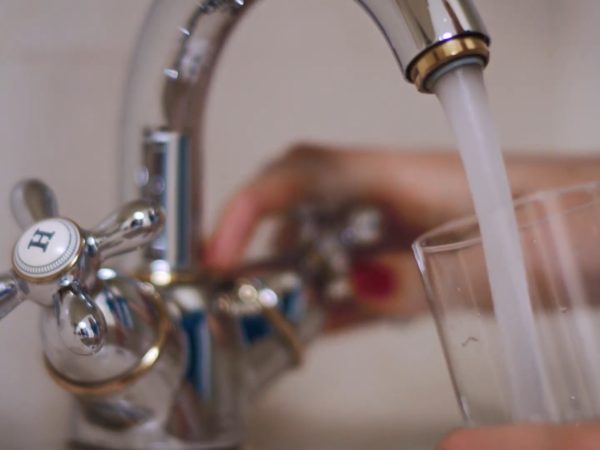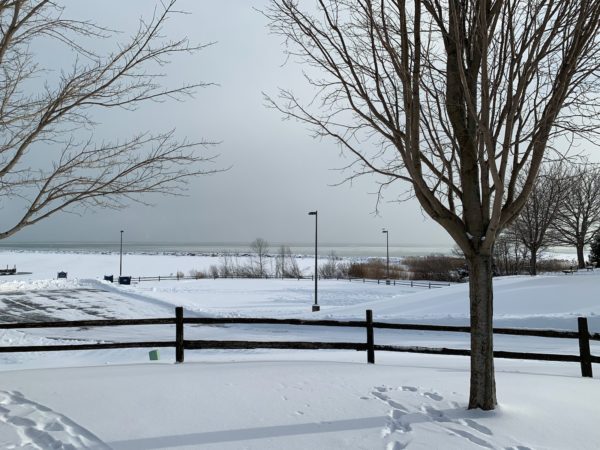
Activist group, Water Watchers, had reason to celebrate last month when water bottler BlueTriton announced it will cease operations in Puslinch, Ontario in January, 2025. The group’s website beamed “We Won” and said the exit was a “historic win for water justice.”
To get a better understanding of the issues surrounding bottled water in Ontario, Canada, Great Lakes Now contacted Arlene Slocombe, executive director of Water Watchers and McMaster University Professor, Dawn Martin-Hill and founder of the Indigenous Studies Program at McMaster University.
In a statement for Water Watchers, Martin-Hill said, “We have opposed [BlueTriton’s] water taking for many years.”
Slocombe has been engaged in bottled water resistance since 2007. In a previous interview with Fatima Syed of The Narwhal, BlueTriton’s exit came as a surprise.
“We didn’t envision they would leave,” she told The Narwhal, saying “It’s a testament to collective action.”
BlueTriton acquired the bottling operation from Nestlé Water in 2021, which included the plant in Ontario and the Nestlé facility in Mecosta, MI. The Mecosta location has been the site of ongoing disputes between water activists and Nestlé, with the state siding with Nestlé under Michigan’s two recent U.S. governors, Republican Rick Snyder and Democrat Gretchen Whitmer.
BlueTriton is engaged in a merger with Primo Brands Corporation with headquarters in Tampa, FL and Stamford, CT. Among its bottled water brands are Ice Mountain, Pure Life and Poland Spring.
Great Lakes Now also reached out to Ontario’s Ministry of Environment, Conservation and Parks who provided regulatory information related to permits. BlueTriton and Primo Brands did not respond to requests to comment for this report.
Business shift
In a recent lengthy email exchange, Slocombe said she had “been anticipating some kind of business shift” at BlueTriton because its owners, unlike Nestlé, are not a buy and hold company. They tend to streamline operations, cut costs and sell at a profit, according to Slocombe.
There could also be trouble with the well from where water is drawn, Slocombe said. She also said the company was getting pressure to exit from the Indigenous Six Nations who claim the land.
Not everyone is pleased to see BlueTriton depart.
Mayor James Seeley of Puslinch, the site of the BlueTriton facility, said in local reporting that BlueTriton “was a great corporate citizen,” and is known for making contributions to local service groups.
Asked to respond to Seeley’s statement, Slocumbe said: “it is a part of the corporate playbook of large water extraction companies to situate in small rural communities that then become dependent on the tax base and other small handouts offered by the company.”
Seeley also lamented the loss of approximately 150 jobs when the plant closes in January saying the loss is significant.
Slocombe responded, “the tax base loss that Puslinch may experience pales in comparison with the cost of having to seek new water sources to meet local drinking water needs. “Money isn’t life, but water is life and needs to be prioritized as such.”
Slocombe concluded her email saying: “bottled and packaged water are central to the global process of water commodification and are a key impediment to realizing the human right to water, not to mention a major environmental threat.”
Cease and desist
In September 2021, after BlueTriton acquired Nestlé’s Ontario water bottling facility, the company received a “cease and desist” statement from the Haudenosaunee Confederacy of the Six Nations of the Grand River.
The statement said: “we are aware that your company is illegally taking 3.6 million [liters] of water a day from beneath our feet.”
The statement said BlueTriton might have the authorization of “the settler colonial government” but “we declare your activities to remove aquifer waters under our territory unpermitted and demand that you cease your activity immediately.”
It continued saying 91% of Six Nations people don’t have access to clean drinking water.
In September, CBCNews reported that the Six Nations water problems are due to lack of basic infrastructure. Also citing a statement from elected official, Chief Sherri-Lyn Hill who said, “no one outside the community gives a damn.”
For McMaster’s Dawn Martin-Hill, the legality of BlueTriton’s water taking is clear.
“The water taking is illegal under Canadian law, period,” she told Great Lakes Now. “Draining our water and refusing to acknowledge the treaty territory is illegal.”
Water taking in Ontario is governed by the Ontario Water Resources Act according to Gary Wheeler, spokesperson for the Ministry of Environment, Conservation and Parks (MECP). Wheeler characterized the sale of BlueTriton as a business transaction and MECP was not involved.
“The existing wells may remain operable if new owners wish to take over their operation under the same terms currently in effect,” Wheeler said.
Permits are not directly transferable, according to Wheeler. He said that under the Ontario Water Resources Act if the person responsible for taking water changes, the person taking over the operation must apply for a change of ownership.
Wheeler said MECP is not aware of inquiries from potential water bottling companies.
Referring to Mayor Seeley’s comments, McMaster’s Martin-Hill said: “the Mayor can continue to apply their own laws regarding Indigenous rights — which are enshrined in Canadian law and the United Nations. We will continue our right to non-consent.”
Catch more news at Great Lakes Now:
Featured image: Plastic water bottles. (Photo Credit: iStock)




